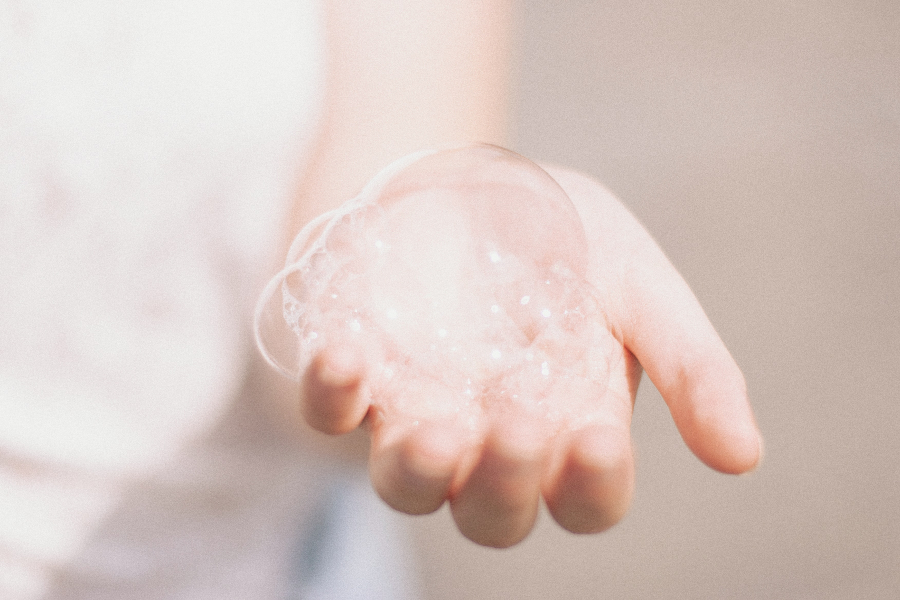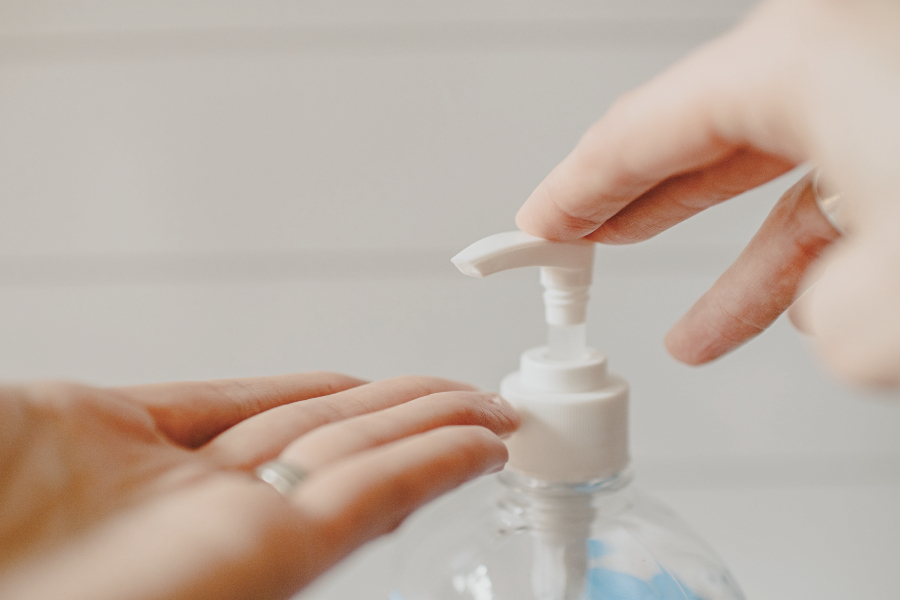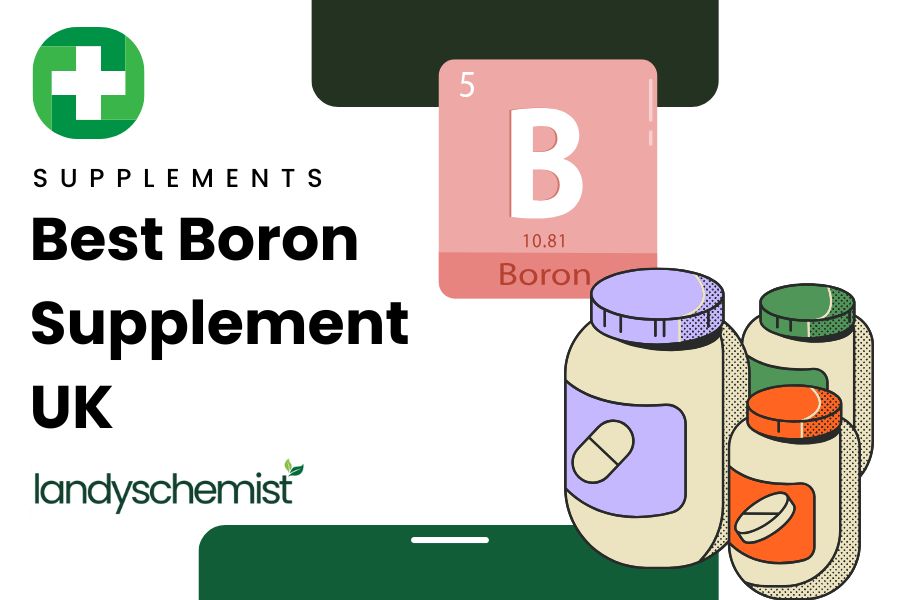
The Best 5 Step Hand Care Routine
Hand care is important if you want your hands to look and feel great. Since we use them all the time, we can take our hands for granted and without a little TLC, they can become dry, rough or even sore. Luckily, a regular hand care routine is easy to start and won't take too much time out of your day.
Below, we've created the best hand care routine to ensure healthy hands. We explain the benefits and recommended products to use for each of the 5 steps.
5 Step Hand Care Routine
1. Moisturise Your Hands Regularly
Regularly moisturising your skin is an important first step in supporting your skin's health. Often when talking about moisturising, we mean the skin on our faces and sometimes our bodies, forgetting about our hands. Moisturise your hands too!
A good skincare routine involves applying moisturiser twice a day. You should be using a moisturiser that works with your face skin type, such as dry or oily. While you can have a specific hand moisturiser, it's not a necessity and you can use a little of your facial moisturiser, applying it across your fingers, palms and back of your hands.
2. Wash Your Hands Properly

Your hands should be cared for as much as your teeth or the skin on your face. Regular and proper washing of your hands is really important for maintaining healthy skin on your hands and for your overall health.
How To Wash Your Hands Properly
To make sure you are washing your hands properly, familiarise yourself with the following guidance. NHS advice for hand washing says the following:
- Wash your hands for 20 seconds.
- Wash your hands in warm water, not hot water.
- Use enough soap to cover your hands.
- Lather the soap over your hands by rubbing them together, ensuring you get between your fingers, the back of your hands and under your nails by scrubbing them against your palms. Don't forget to rub your thumbs too.
- Rinse the soap off your hands, until clean.
- Dry your hands fully with a clean cloth, towel or air dryer.
Why Is It Important To Wash Your Hands Properly?
Washing your hands properly and regularly will do a number of things. It will:
- Remove dirt, including hard to spot and small pieces of dirt and grime.
- Cleanse your skin of bacteria and viruses, and prevent them from spreading to whatever you touch next.
- Reduce the spread of illnesses such as food poisoning, flu and diarrhoea.
When To Wash Your Hands
We use our hands a lot, which means we need to be washing our hands quite frequently. You should wash your hands in the following circumstances:
- After using the toilet.
- Before and after handling food, including between preparing raw meat and preparing vegetables.
- After blowing your nose, sneezing or coughing.
- Before and after treating a cut or wound.
- After touching, feeding or cleaning pets.
- Before and after changing, cleaning or feeding a baby/child.
During COVID-19, you will likely also be washing your hands or using hand sanitiser:
- Before and after travelling on public transport.
- Before and after using communal office or public equipments, such as touch screens.
And don't forget to use a quality hand wash too!
3. Don't Forget To Use Your Hand Cream
Regular hand washing is important because it cleans our hands and protects our overall health. But the downside of washing our hands often is that, even when using delicate soaps, the hydrating barrier on our skin can wear down. In order to maintain a healthy skin barrier on our hands, hand creams are recommended.
Hand creams are a beneficial way of ensuring the epidermis (outer layer) of your hands has the best protection from damage. A hand cream will help to rehydrate your skin and prevent it from drying out. Some people can have naturally dry skin, but there are also environmental factors that can cause dry skin. For example:
- During summer, when the heat of the sun can dry out your skin.
- During winter, when the cold air can damage your skin, leeching moisture – which can be especially bad if you already have naturally dry skin.
- In warm rooms with central heating, which dries the air, your skin can dry out more quickly and become cracked or flakey.
Best Hand Creams
There are lots of great hand creams you can use throughout the day and overnight to get the extra support for your skin. We recently wrote about the best hand creams, particularly if you are washing your hands a lot – due to COVID-19 or because you work in a catering or medical profession. If you aren't sure what hand cream to try first, we recommend:
4. Protect Your Hands From Sun Damage, Daily
Protection for your skin from the sun is important throughout the year. Applying a layer of sunscreen, after using a moisturiser or hand cream, is recommended to stop free radicals and skin-damaging rays from harming your skin. You should be applying sunscreen to your face and any exposed skin, including your hands.
You can use the same sunscreen on your hands as the rest of your body. But remember you will need to reapply when spending time in the sun and after hand washing.
5. Treat Hand And Skin Issues Immediately
Naturally, your hands need more care than just keeping an eye on what's on the surface or preventing dry skin. Part of looking after your hands is making sure you deal with skin, joint and nail issues when they appear. It's always better to be safe and get an issue checked than wait and see.
Aim to clean any cuts and cover with a plaster or bandage as needed. Check with your GP if you have uncomfortable or unusual sensations in your hands. You can also take nail supplements to help support healthy nail growth.
Don't Forget To Look After Your Hands
We hope you found this short hand care routine useful. Your hand health is not something to take for granted, but by taking a few minutes each day you can keep on top of it and ensure your hands are well taken care of.






